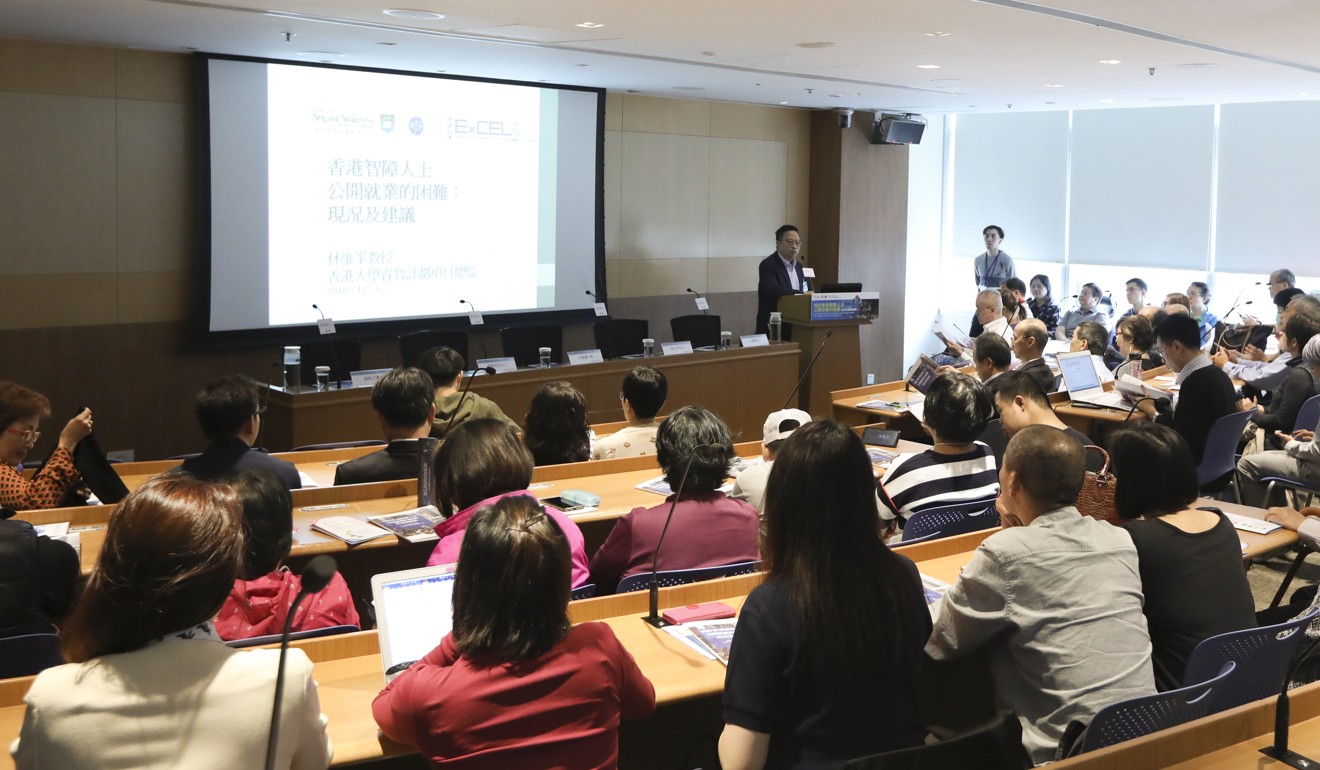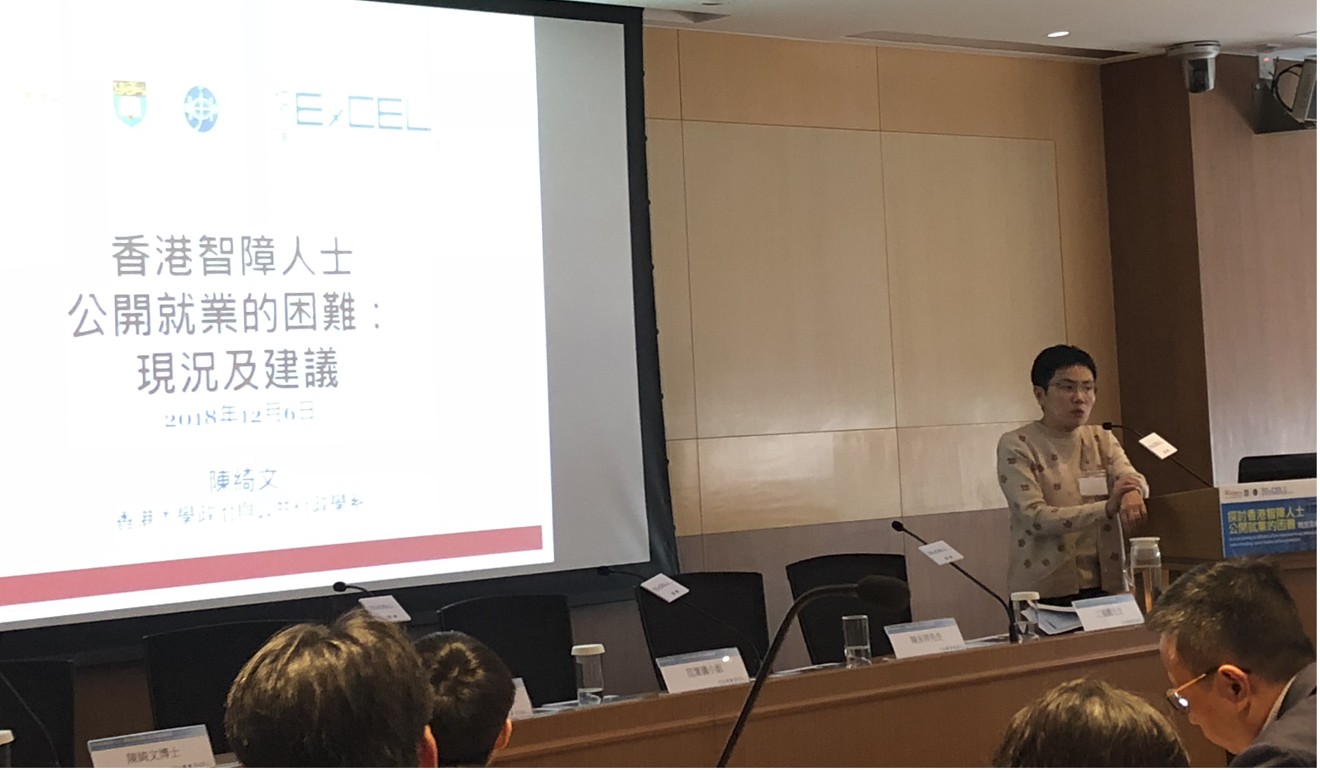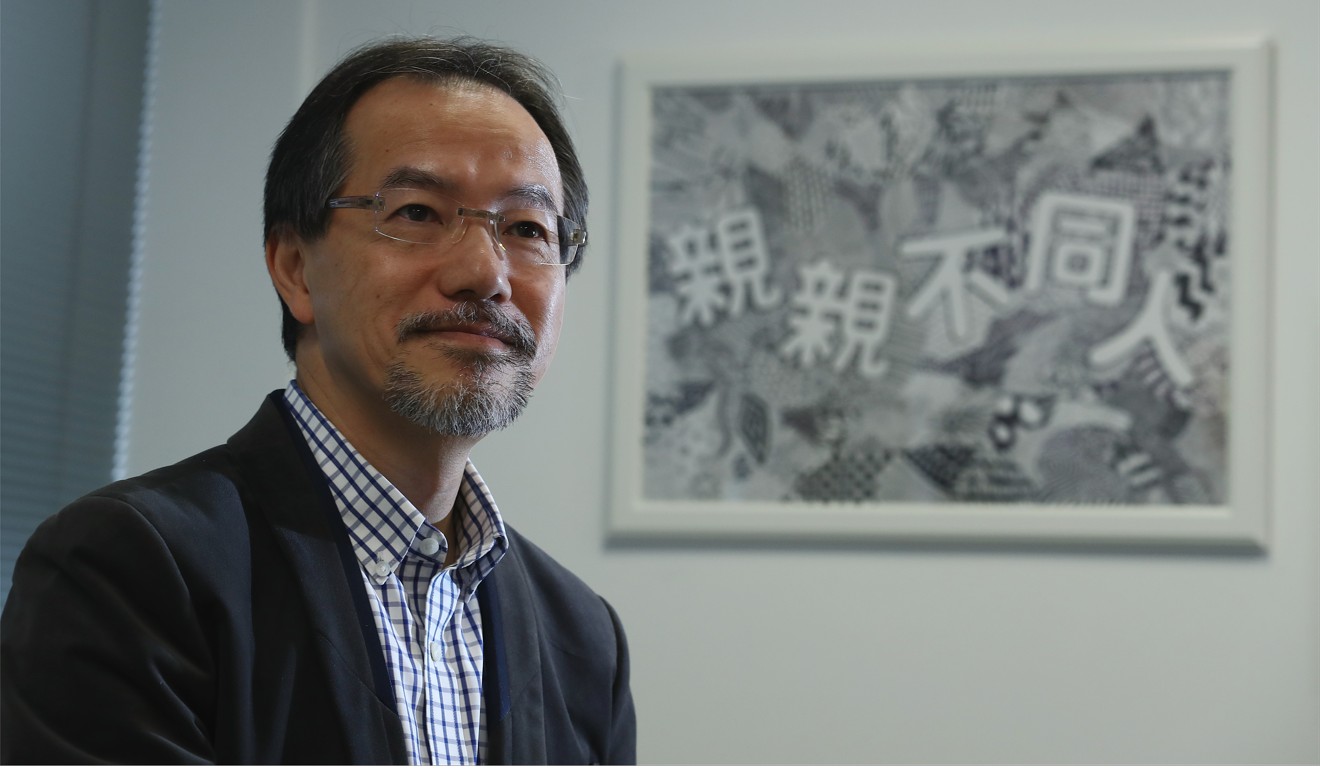
How can Hong Kong help the intellectually disabled find work?
- Researchers at the University of Hong Kong tell forum that opportunities are out there, but linking the right candidate with the right job is a challenge
Hong Kong should commission a consultancy to explore and compile a list of professions available for the intellectually disabled to help tackle the low employment rate among the group, experts have said.
The idea was promoted at a forum last week during which advocates, researchers and employers discussed ways to increase opportunities for the marginalised minority.
Only 8 per cent of 276 school leavers from special needs institutions in the 2014-15 academic year who had a mild intellectual disability went on to find work, according to official figures.
In the United States the employment rate for intellectually disabled people aged between 21 and 64 was 34 per cent in a 2013 study.
Dr Elaine Chan Yee-man, honorary associate professor at the University of Hong Kong’s department of politics and public administration, said a list of available occupations would increase awareness of the opportunities out there.

She recommended officials or NGOs set up an online job search platform linking jobseekers, their parents and employers.
The government should also fund the employment and training of job coaches to help with interview preparation and matching applicants with suitable positions, she said.
Social workers already undertook some of this work, Chan added, but there was a shortage, and job coaches could receive specialised training.
Hong Kong charity Art in Hospital aims to help intellectually disabled to find their creative streak
“Abundant evidence from overseas has shown that with the right support, even those with severe disabilities can get a job on the open market,” she said.
Her recommendations come ahead of the release of a new Rehabilitation Programme Plan – last reviewed in 2007 – setting out the government’s strategic direction and ideas to address the needs of Hongkongers with disabilities.
Dragon Kong Yuen-lung, general manager at Far East Laundry Group, where 10 per cent of employees are intellectually disabled, said his disabled staff were loyal and able to remain focused when carrying out repetitive tasks.

“There is a large number of repetitive tasks in the laundry industry and some people might not have the patience for that,” he said.
Kit Fan Kit-yee, corporate head of human resources at the Hong Kong and China Gas Company, commonly known as Towngas, had made similar observations. Some positions were hard to fill at her firm but could be a good fit for many intellectually disabled applicants, she said.
3D learning program developed in Hong Kong to help intellectually disabled children
At the forum, hosted by HKU, a team of researchers from the institution presented ideas from a newly released study carried out between June 2016 and August 2017.
Chan, the lead researcher on the project, said the perseverance and courage shown by many intellectually disabled workers often served as inspiration to colleagues.
However, the employment rate for the group remains low.
The majority of school leavers from special needs institutions in the 2014-15 academic year entered vocational training or classes in daily living skills (89 per cent), while 2 per cent went on to further study, according to official statistics.

The study also included the views of the Labour Department and lawmaker Fernando Cheung Chiu-hung – a long-time advocate of better welfare for the group.
The research identified several stumbling blocks to employment, including a lack of understanding by bosses and their concerns about getting colleagues to accept the intellectually disabled.
Nicky Chan Wing-cheung, senior manager at Caritas Lok Mo Integrated Vocational Training Centre, said companies could address these challenges by organising one-month internships for applicants to taste whether a job was suitable, and to prepare staff for the new hires.
Kong said his company had identified jobs targeting the intellectually disabled and had purchased automated machines to aid them in their work.
Hong Kong High Court finds 2011 government policy discriminated against students with intellectual disabilities
The government’s Social Welfare Department provides places at sheltered workshops where people with disabilities work for a small income and receive training in tasks such as packaging and car washing. But Elaine Chan noted her study had found such an environment not suitable for many with greater abilities.
“One told us he felt useless, lonely and unhappy, as though he was not doing real work in a sheltered workshop,” she said.
The study also found many parents were overly protective of their intellectually disabled children.
Choi Yuen-che, mother of a moderately intellectually disabled woman, said she did not want to shelter her daughter and supported her working in a laundry shop, where she has been employed for the last three years. The job made her daughter feel capable, Choi said.
“I tell her that working is exhausting for everyone and that her father and mother face difficulties too,” she added.
Elaine Chan said those in work tended to be more upbeat, confident and have better social skills.
The number of intellectually disabled Hongkongers was estimated at between 71,000 and 101,000 in 2013, accounting for between 1 per cent and 1.4 per cent of the population, according to the Census and Statistics Department.

